Pregnancy is a time of joy and excitement. That’s what we like to say, at least.
During pregnancy, your body undergoes magical and often surprising changes, bringing with it new concerns and worries, particularly if you’re facing short torso pregnancy.
There is joy and excitement to be had, of course, but you must pause to cherish the journey. You have to appreciate yourself and the beauty of what your body is capable.
With every tomorrow, your baby bump grows bigger. Each step becomes more and more overwhelming. A pregnant woman can only stay in control by staying well informed.
That’s the only way to tackle your challenges head-on.
First, you have to address the potential risks and complications of having a short torso.
That’s your starting point. We aim to provide all the information you need. With our help, you can make good and healthy decisions that eventually result in a successful pregnancy.
Keep in mind that you’re not alone. You’re not the first person to face this problem.
Like you, many other women have short torsos. They have asked the same questions. They have worried about the same things – and have gone on to give birth to healthy babies.
So, strap yourself in and let us help you navigate short torso pregnancy successfully.
What Does It Mean to Have a Short Torso?
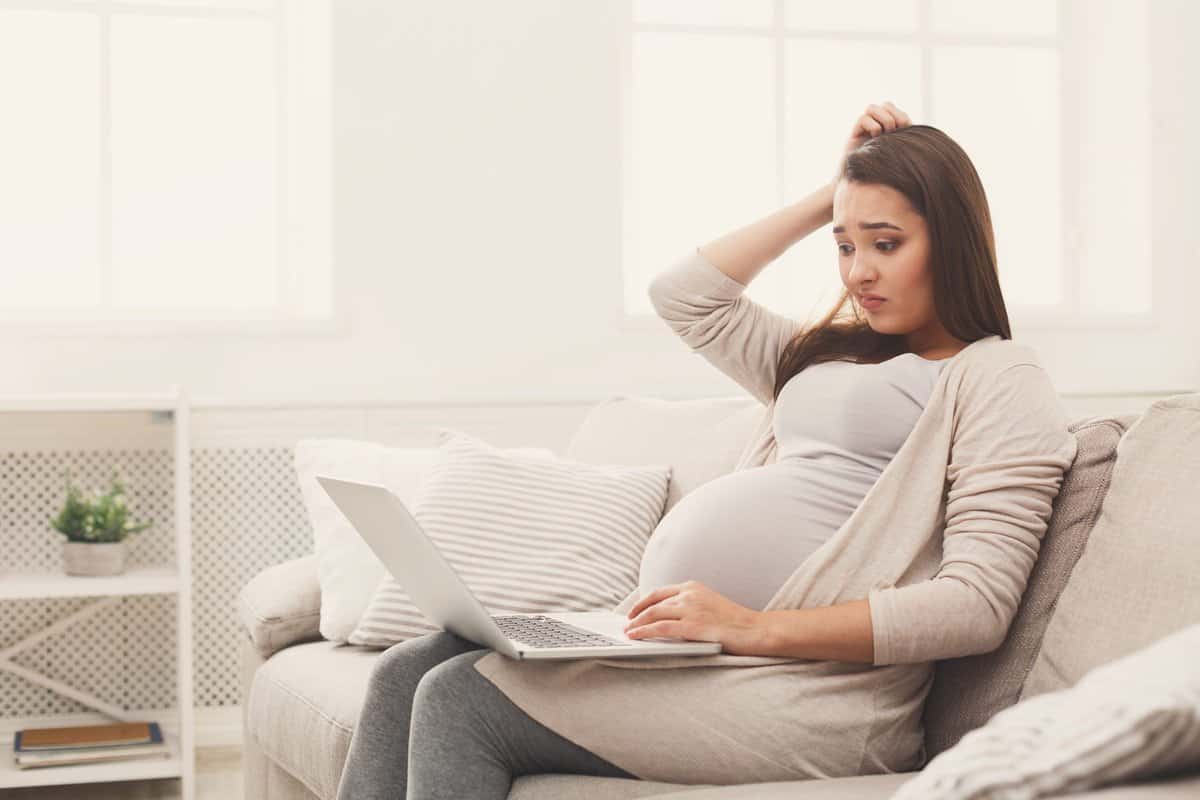
There’s one common misconception about this dilemma.
Many people wrongly believe that a short torso implies that you’re, well, short in height.
That’s not the case. In fact, even tall women can have short torsos.
In order to determine whether you have a short torso, consider the distance between the hip bones and the bottom of your ribcage. Is it shorter than the rest of your body?
How do you even properly tell if you have a short torso?
Eye-balling it won’t yield any results. Yes, you may suspect that you do, but there are no set measurements to identify it. For starters, consider your height in relation to your torso.
In truth, only your doctor can successfully help you assess your body type.
More than that – they can provide further guidance and assistance.
What’s the next step if your doctor informs you that you have a short torso? Proceed by informing yourself about the potential risks associated with short torso pregnancy.
How does it affect your pregnancy?
Hard to say. Every pregnancy journey is different. Each body is different.
What someone else has experienced – regardless of whether they have a short or long torso – doesn’t mean that you will experience identical symptoms and transformations.
They always tend to be unique and often unpredictable.
What we do know, however, is that there are risks to short torso pregnancy.
You have questions and that’s perfectly reasonable. So, let’s not leave them unaddressed.
The Risk of Premature Birth

It can be very stressful when you realize that you’re at risk of premature labor.
Have you had a premature baby in the past or is this your first time being pregnant?
Either way, uncertainty can be a difficult beast to tame. One of the most common complications associated with short torso pregnancy is early labor.
As far as we know, women with short torsos are at a higher risk of premature birth.
But how high is the risk, exactly? It’s hard to tell. Maybe even impossible.
Every woman experiences pregnancy differently – and it’s not just about genes.
Let’s put genetics aside for a moment. Nutrition and health habits are just as important.
They play a vital role in determining the outcome of your pregnancy.
So, it’s a combination of factors rather than just your short torso.
Bear in mind that not all women with short torsos experience premature delivery.
The last thing we want is for you to start pulling out your hair in worry. Still, you need to take these risks seriously because babies born prematurely can experience complications.
In most cases, breathing difficulties and developmental delays ensue.
All right, but when does premature labor typically occur? It varies.
It can happen between the 20th and 37th week of pregnancy.
But in what way is having a short torso connected with early labor?
The science points to two possible explanations.
The first one is that women with short torsos have less space in the uterus to accommodate a growing baby, which inevitably puts more pressure on the cervix.
An alternative may be that a short torso implies a shorter cervix.
That in and of itself can cause preterm labor.
While not all women with short torsos experience premature birth, it’s important to be aware of the potential risks and to communicate openly with your healthcare provider.
Your Baby Is Likely to Be Small
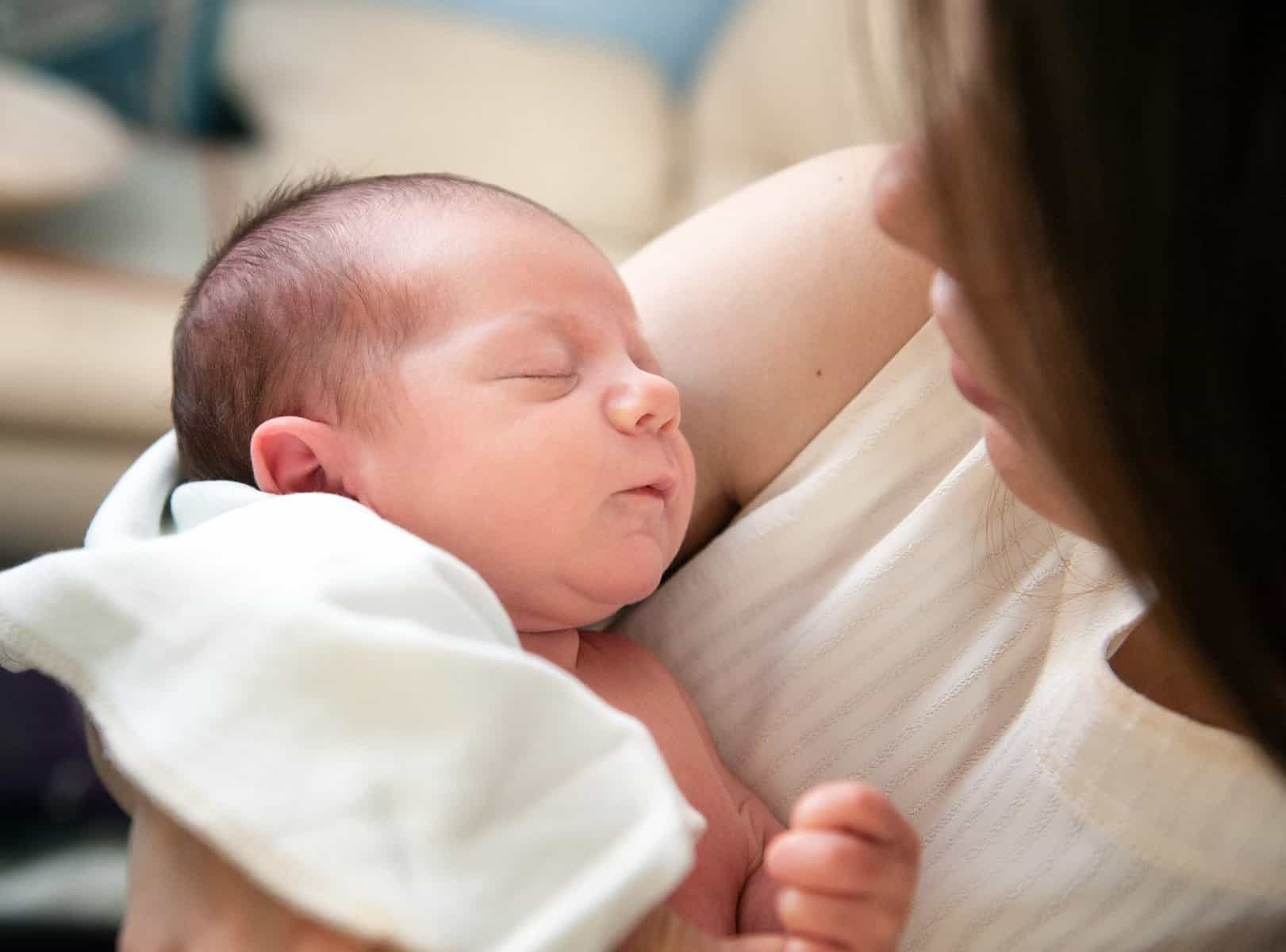
Research has shown that smaller women make smaller babies.
Not always, but yes. They also tend to have shorter pregnancies by a slight margin.
The risk of preterm birth is higher, but why exactly?
Inside your baby bump, your baby has less space to move around. That means less space to grow and develop. As such, the fetus can be rather smaller than expected for its age.
But what are the potential complications of having a smaller baby?
Smaller babies can experience certain health problems.
First of all, a short torso pregnancy can dictate the height and weight of your baby. In certain cases, a low birth weight can lead to health problems and complications after birth.
Don’t worry, because that doesn’t happen frequently.
Smaller babies can be just as healthy as normal-sized babies.
Still, as a future mom, you must be aware of the potential risks and complications. For example, low birth weight can cause respiratory issues and even neurological disorders.
Short torso pregnancy basically means that the baby can’t stay in the mother’s womb for an optimal amount of time. Due to the tightness, there’s an increased chance of early labor.
However, genetics are a crucial factor, as well. Even though they are a combination of genes from both parents, the mother’s womb can directly influence the baby’s height.
During this time, you have to stay in direct communication with your doctor.
If you have any worries – voice them.
Your doctor will gladly guide you through the process.
However, it’s up to you to attend all recommended prenatal appointments.
Even though your precious little angel may be on the smaller side of things when they arrive to this world, that doesn’t imply that you will give birth to an unhealthy baby.
Still, it’s important to mind the risks.
Dealing With Short Torso Pregnancy
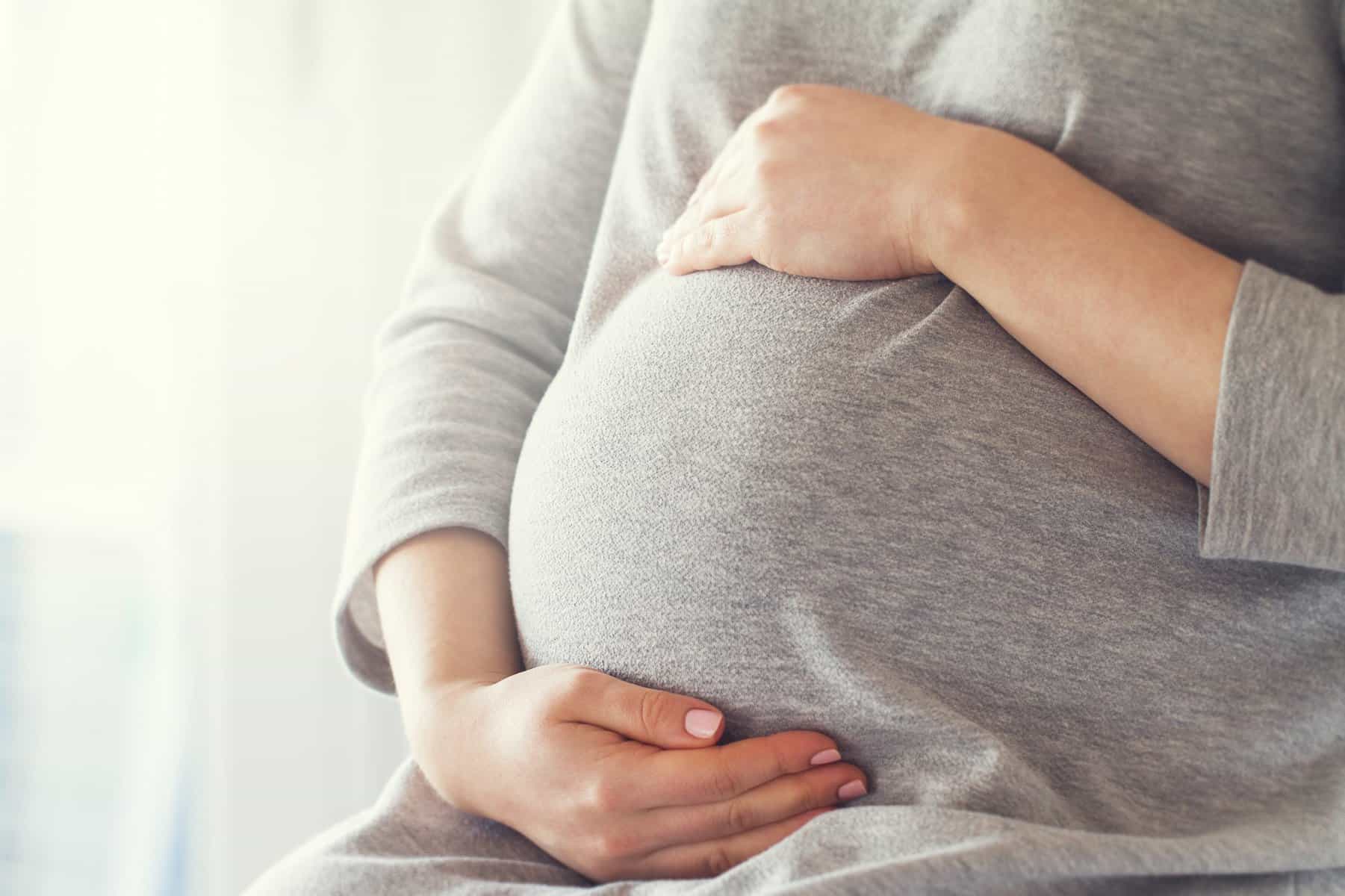
During pregnancy, every woman encounters problems and challenges.
Each body is unique, and the journey is different for every woman.
Having a short torso can add to the overall confusion and fright that you may be experiencing during this exciting time.
We’re here to help you learn how to cope.
Now that you understand the risks – you’re getting started on the right foot.
There are certain things that you can do to deal with short torso pregnancy.
However, it is of the utmost importance that you remain in contact with your doctor. Voice your concerns openly, ask for guidance when necessary, and get regular prenatal care.
With the help of your doctor, you can detect any potential problems on time.
Stress can be exhausting and often immobilizing, too. So, stay active.
Staying physically active during pregnancy is vital for every woman.
Just remember to take it easy. You need to avoid strenuous activity. When you’re pregnant, it could potentially endanger your baby’s health – and your health, too.
Every mom-to-be needs to know what she can and can’t do. Stay safe.
Another thing that’s vital for women going through short torso pregnancy is to maintain good posture. Practice it regularly. Your back and shoulders are under a lot of pressure.
Avoid slouching, try yoga, and use pregnancy pillows.
A pregnancy pillow can help you sleep easier, primarily since short torso pregnancy is known to contribute significantly to back and neck problems due to the added weight.
Above all else, stay positive. That’s the best thing you can do for yourself. By staying optimistic and having a positive outlook, you reduce your stress levels significantly.
If you’re overstressing short torso pregnancy, you complicate your mental health.
You’re not the only woman on the planet with a short torso. You’re not alone.
So, don’t freak out. Focus on taking care of yourself, physically and mentally.
Will Your Bump Show Sooner?
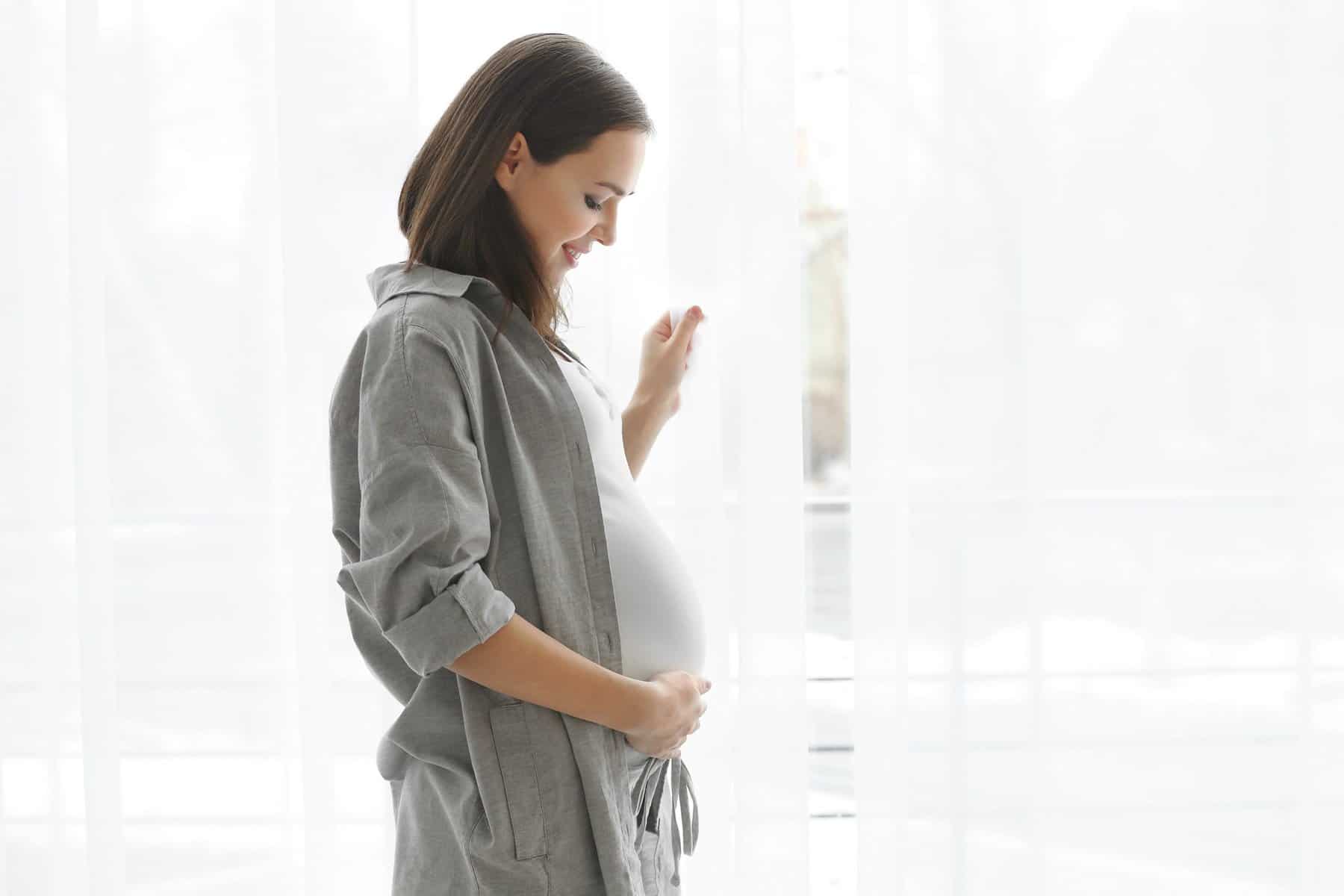
Many short torso women wonder if their bump will show sooner.
Unfortunately, there’s no definite answer to this question.
Each body is different, and only time can tell how and when your belly bump will form.
That said, some shorter women may show earlier than women with long torsos since the uterus has less space to expand. Either way, it’s not something to worry about.
When you show is dependent on numerous factors outside of your torso length.
Your weight and body composition determine it, as well.
Overall, it’s not a cause for concern.
Some women don’t show up until the end of the second trimester, sometimes well into the third trimester. So, focus on staying healthy and going for regular prenatal check-ups.
If you’re really worrying about it and stressing yourself – talk with your doctor.
They can reassure you that everything is fine or detect issues if there are any to detect.
Is It Different Than a Long Torso Pregnancy?
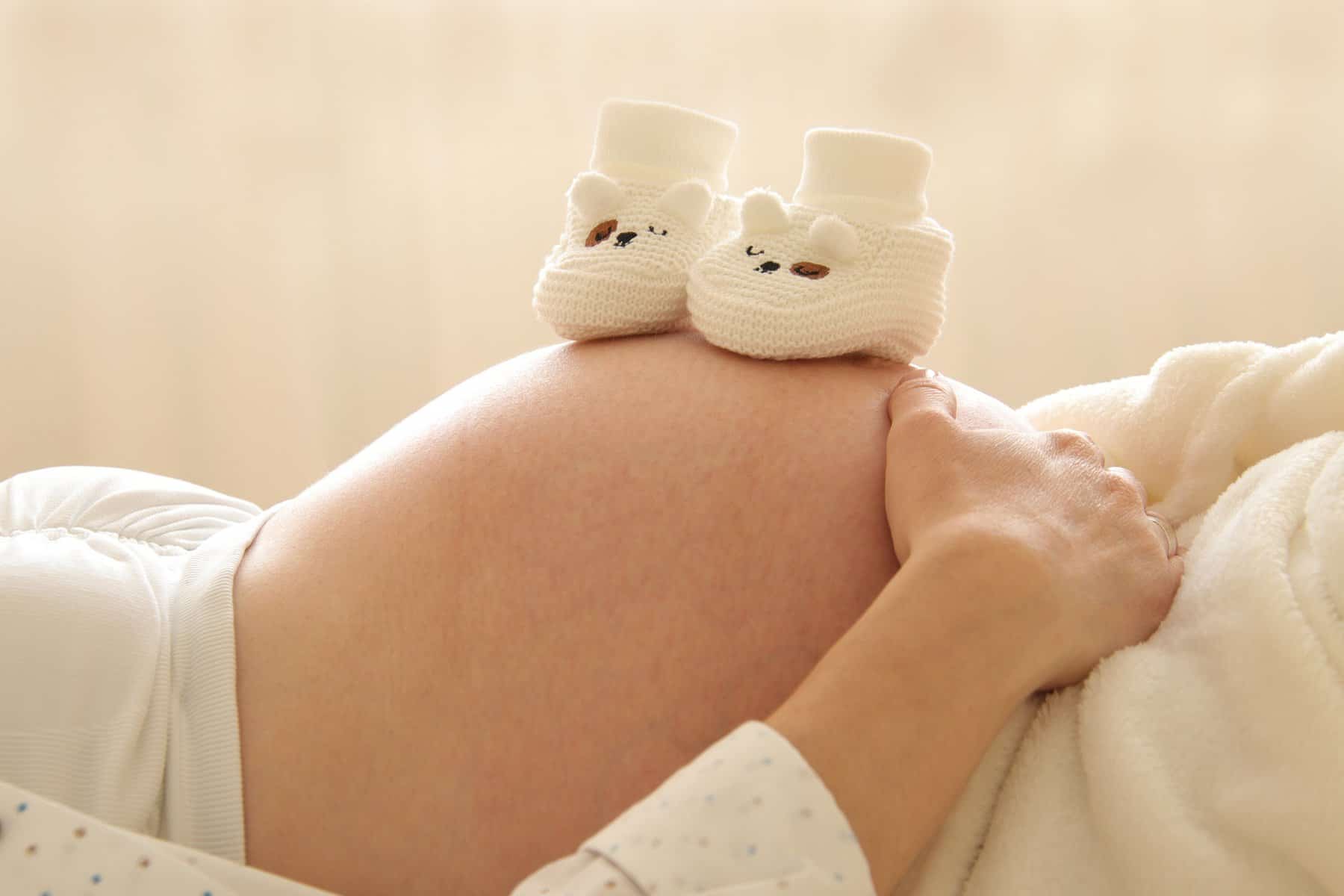
As human beings, we tend to compare everything.
In what way does a short torso pregnancy differ from a long torso pregnancy?
Is it easier with a long torso? Are there fewer risks?
While some claim that pregnancy is noticeably easier with a long torso, there is no way to tell for sure. Your pregnancy is going to pan out in a way that is totally unique to you.
Technically, having a long torso during pregnancy makes it easier for the baby to grow and develop because the fetus has more space, which decreases the risk of early labor.
Another potential benefit is that women with long torsos tend to experience less back and neck strain.
That said, back and neck pain is practically inevitable during pregnancy.
Regardless of torso length, both body types can have successful pregnancies and give birth to beautiful and healthy babies. There’s no way foolproof to predict the challenges.
However, as opposed to women with long torsos, women with short torsos tend to have bigger baby bumps since there is insufficient space for the baby to grow upwards.
Instead, the fetus expands forwards, enlarging your belly.
Don’t feel bad or self-conscious about this. Appreciate and cherish your baby bump.
There’s not much to separate short and long torsos during pregnancy.
But, if you have any concerns or questions, it’s best to take it up with your doctor.
Tips for a Healthy Short Torso Pregnancy
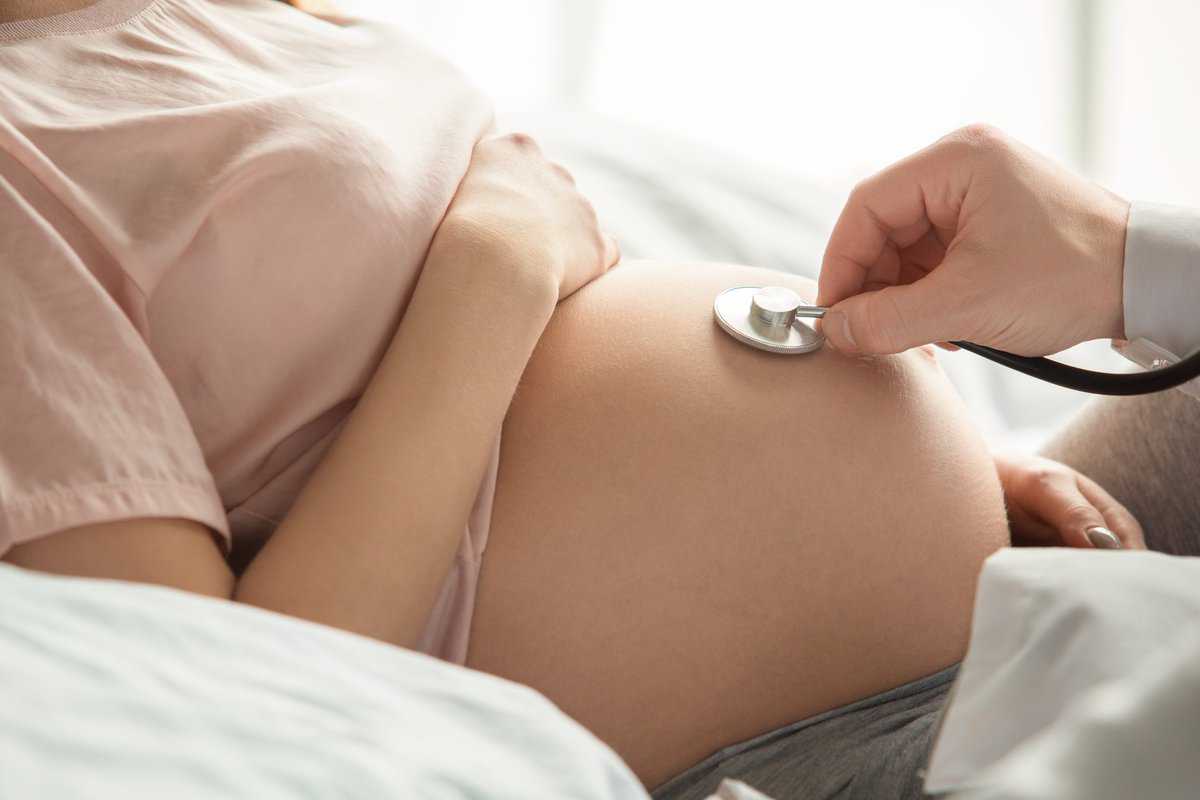
If you’re still worried – as many pregnant women are – there’s a lot that you can do.
Short torso pregnancy isn’t as scary as it sounds, and you’re not helpless. Give yourself some peace of mind by following our tips on how to deal with short torso pregnancy.
• Don’t skip prenatal care. This goes for all pregnant women, not just for short torso pregnancy. Prenatal care is an essential part of every woman’s pregnancy journey.
By going for regular check-ups, your doctor can spot any irregularities early on.
Besides, they can offer advice on how to deal with short torso pregnancy.
• Focus on eating well. A well-balanced diet is crucial for pregnant women. Well, it’s crucial for just about anyone, but you have two human beings to worry about now.
Read up on what kind of diet would suit you and your baby.
During this time, you want to support your baby’s development to the fullest.
• Remember to stay hydrated. Avoid sugary drinks.
Hydration is an essential part of a healthy pregnancy. It can help you prevent issues such as constipation. On top of that, it even significantly lowers the risks of premature delivery.
But how much water should you drink daily?
In general, you should go for 8 to 12 cups of water every day. That’s 64 to 96 ounces.
Water has many benefits and vital nutrients that support a healthy pregnancy.
• Stay active. Exercise, but don’t strain yourself.
During pregnancy, you have to make sure to stay physically active. Be careful not to over-exhaust yourself to the point where it negatively affects your health and well-being.
By physically overexerting yourself, you can endanger your baby.
So, stay active within moderation. Do exercises that are pregnancy-safe.
• Don’t neglect your posture.
Especially if you’re experiencing short torso pregnancy, you’re going to feel more and more pressure and discomfort in your back, neck, and shoulders as time goes by.
One thing that can be particularly helpful – and this works with hydration, too – is to make a reminder to do a posture check and to place it somewhere where you can easily see it.
• Rest is crucial. During short torso pregnancy, you need to get enough sleep.
This is important to stay physically healthy and mentally sharp.
The benefits are significant not only for you but for your baby, too.
Every pregnant woman must look after herself, starting with getting enough rest. Make sure to incorporate other self-care and self-love routines and practices, too.
• Finally, don’t forget to wear comfortable clothes.
No matter your body shape or the size of your belly, today, there is so much variety when it comes to maternity clothing, so you won’t have trouble finding clothes that fit correctly.
Keep these tips in mind, and you will prepare yourself physically and mentally for labor, as well as for all the challenges that you may discover as you deal with short torso pregnancy.
To summarize:
- Don’t skip prenatal care.
- Eat healthily.
- Stay hydrated.
- Exercise regularly but safely.
- Maintain good posture.
- Get enough rest.
- Wear comfortable clothes.
Stretch Marks During Short Torso Pregnancy

Stretch marks are a natural part of being pregnant.
They appear as your skin abruptly stretches or shrinks. There’s no guarantee that you can successfully prevent it. If you want our advice, it’s best to embrace them as battle scars.
Choose to cherish your body and the miracles it can do.
That said, stretch marks have nothing to do with torso size.
However, shorter torsos may be more prone to developing stretch marks. That’s because your baby has less space to move around, which causes the skin to stretch more abruptly.
On the other hand, a longer torso may not experience similar strain.
Still, it’s important to note that everyone develops stretch marks differently.
Although there’s no specific way to prevent stretch marks from forming – there are a few things you can do to make them less noticeable and less frequent, regardless of torso size.
Eat healthily and stay hydrated.
If you put on weight abruptly, stretch marks may form more intensely.
Keep track of your weight and stay hydrated to keep your skin elastic.
You will also want to apply oils and moisturizers. They don’t work magic as advertisements would have you believe, but safe products still have their benefits.
On top of that, regular exercise during short torso pregnancy can help alleviate stretch marks. The healthier you are, the fewer negative symptoms you experience when pregnant.
Remember to wear comfortable clothes, too.
You don’t want tight-fitting clothes to put extra pressure on your delicate skin.
Will You Have to Undergo a C-Section?
Despite the risks associated with short torso pregnancy, it doesn’t mean that you will require a C-section. In most cases, it is safe to assume that you will deliver vaginally.
If vaginal delivery poses a risk to you or your baby, your doctor may perform a C-section, but that depends on different factors – and has nothing to do with short torso pregnancy.
Work With Your Healthcare Provider
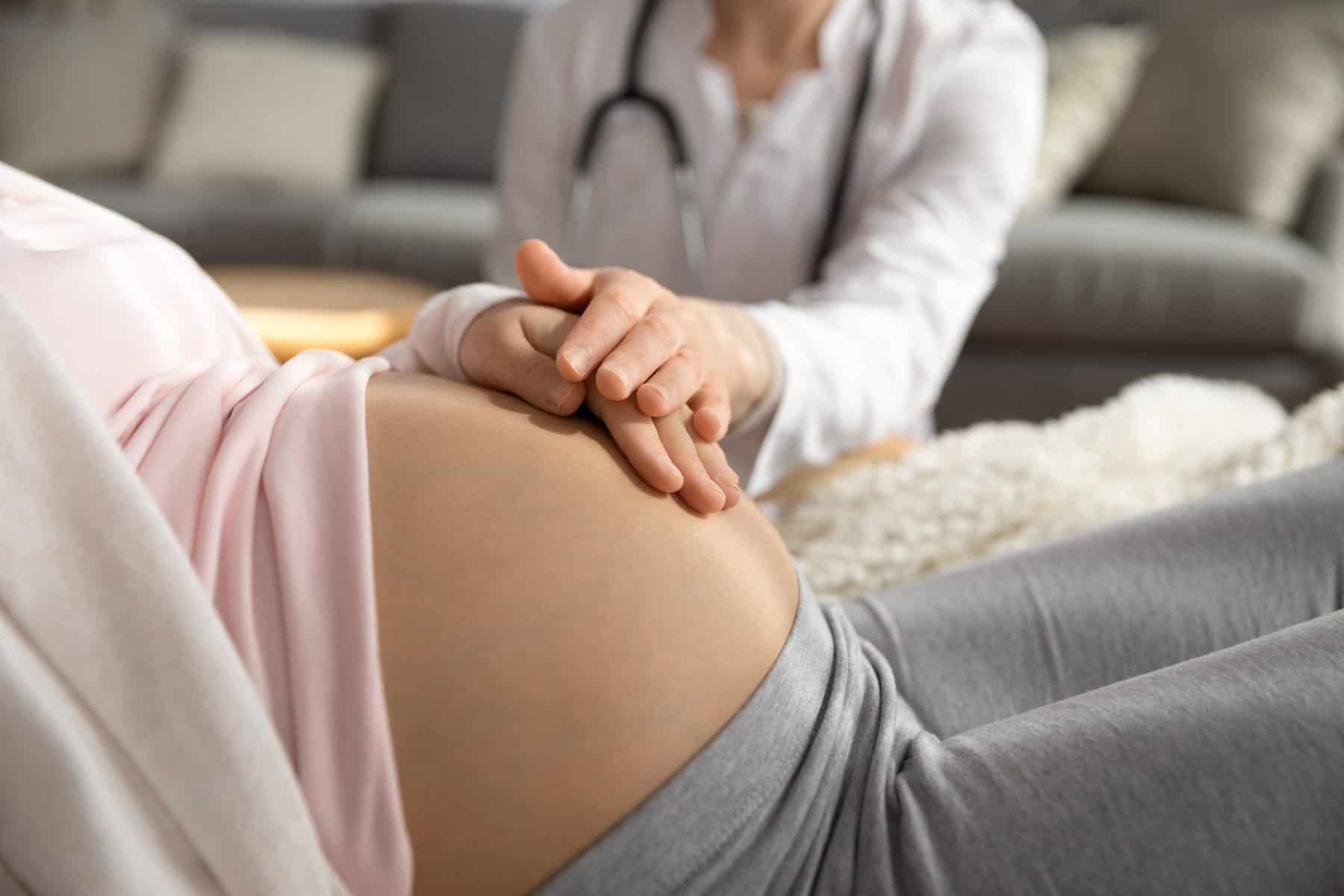
How does having a shorter torso affect your prenatal care?
Well, it doesn’t. Working with your healthcare provider is necessary, regardless of your torso size. They can help you address any concerns you might have and offer peace of mind.
Besides, it’s essential to go for regular check-ups to ensure your short torso pregnancy goes well. If something is wrong, your doctor is sure to spot it early.
Whatever questions or worries you have – don’t hesitate to bring them up.
The last thing you want when you’re pregnant is to overthink things.
Your doctor can provide valuable guidance that can help you stay stress-free.
Also, if you’re unhappy with your doctor, you may want to consider changing them. If you have concerns about short torso pregnancy, you can find someone with experience.
It’s all about getting the support you actually need.
Just make sure that you’re actively involved in the process, conducting regular check-ups to ensure that everything is fine, especially since you’re at a higher risk of early labor.
Maintain open communication with your healthcare provider.
Everyone wants to help you, but a doctor knows best. If you happen to experience any symptoms that may hint to an underlying problem, don’t hesitate to inform your doctor.
In Conclusion
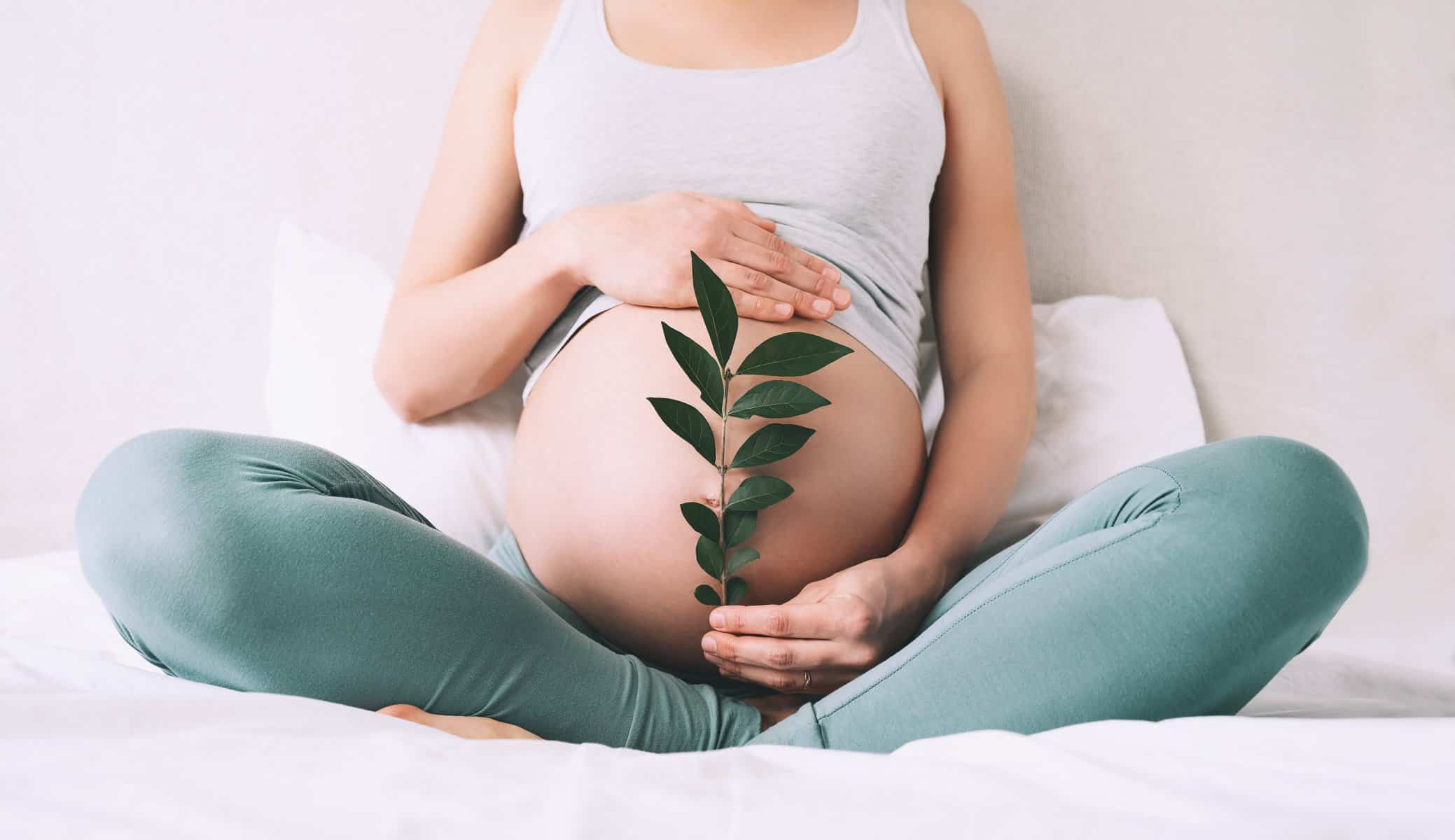
Short torso pregnancy has a few risks, that’s for sure.
However, this doesn’t mean that you should immediately slam the panic button.
As mentioned, every pregnancy is different. So it will be yours. You will experience symptoms in your way and face challenges that are entirely unique to you.
By staying informed and doing regular check-ups, you will have it all under control.
A shorter torso doesn’t mean that you can’t deliver successfully. Besides, many other women have done so without encountering complications. It could be the same for you.
Being aware of the risks is essential, but so is staying healthy while you’re pregnant.
That means eating healthy food, staying hydrated, working out, and getting enough rest.
All of these things ultimately determine the outcome of your pregnancy.
Regardless of your body type – or any woman’s body type – it’s all about working closely with your healthcare provider and taking good care of yourself to give birth successfully.

Mother of three and a primary school teacher. I’ve always loved being around children and helping them, so I chose my path as a teacher. It is sometimes hectic with three children, but I am 100 percent into it and wouldn’t change it for anything in the world.


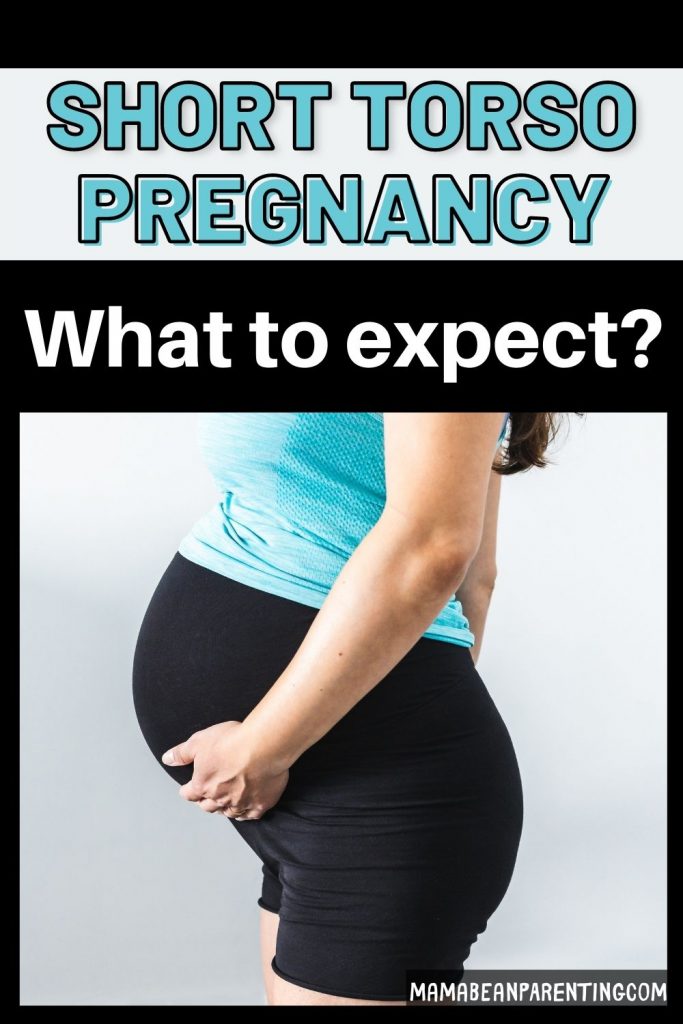
B Belly Pregnancy: Staying Confident • Mama Bean Parenting
Wednesday 22nd of March 2023
[…] Another thing worth considering is whether or not you have a short torso. […]